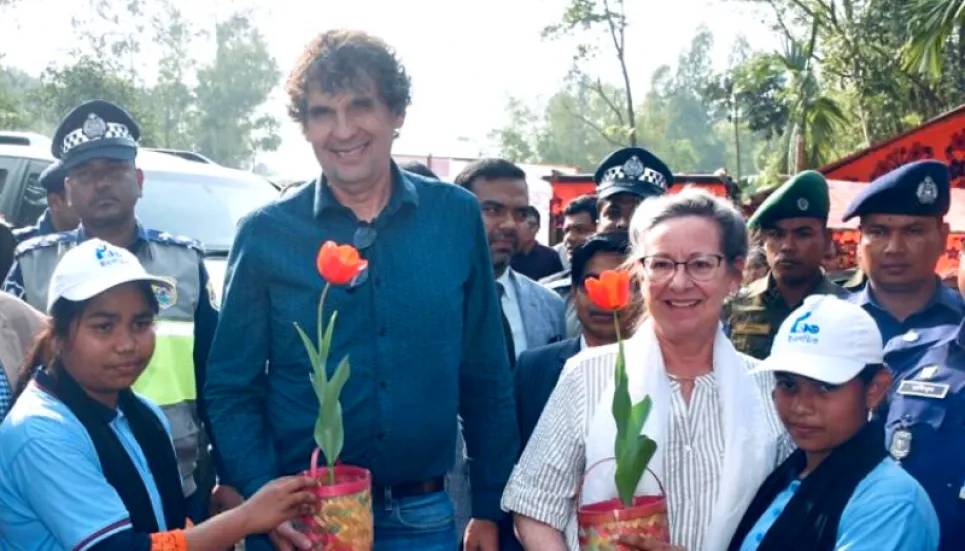
Ambassador of Denmark to Bangladesh, Winnie Estrup Petersen, has visited tulip gardens in the Panchagarh district and hoped that the vibrant flowers will create livelihood opportunities for the rural community.
“I am very pleased to be here, in this colourful tulip garden, and proud that the Danish government, together with IFAD and the government of Bangladesh, has invested in building capacities of these young women farmers,” she said.
A delegation – financing a rural development project boosting microenterprises – visited the tulip fields in the Panchagarh district on Monday.
The delegation included Ambassador Petersen and International Fund for Agricultural Development (IFAD) Country Director in Bangladesh Arnoud Hameleers.
They spoke with local farmers who are growing tulips with assistance from the Rural Microenterprise Transformation Project, co-funded by IFAD and the Danish International Development Agency.
Typically grown in cooler climates, there is high demand for tulips in Dhaka. In 2021, eight farmers were trained to cultivate and market tulips as part of a value chain development initiative implemented by the Palli Karma-Sahayak Foundation and its partner organization, the Eco-Social Development Organisation, IFAD said on Tuesday.
After the successful pilot, the initiative has expanded to include 20 farmers from Darjipara village of Tetulia upazila, who are now producing around 100,000 tulips this year.
Most of the tulips produced by the farmers are transported to Dhaka, and some are sold locally.
Because the flowers are a novelty, the fields also attract visitors and tourists, generating business for the local community.
In this regard, families benefit from subsidiary services such as running local restaurants, providing residence accommodations, and local transportation for visitors to the tulip garden.
“As a Dutch person, tulips are special to me. It is exciting to see them being cultivated in the remotest parts of Bangladesh using interesting technology, trying to simulate the Dutch Climate. These women have proven once again that a new product can be produced and new value chains can be created if they receive adequate support through training, access to financial services, and market linkages,” said Arnoud Hameleers.
Anowara, one of the farmers, said, “I have been involved with livestock rearing and agricultural work. Last year, I started growing tulips, earning Tk 65,000 (USD 620) in only 45 days. With that money, I have brought more livestock. This year, I hope to earn more, also because there is great interest from local tourists visiting the beautiful gardens. This gives us additional business.”